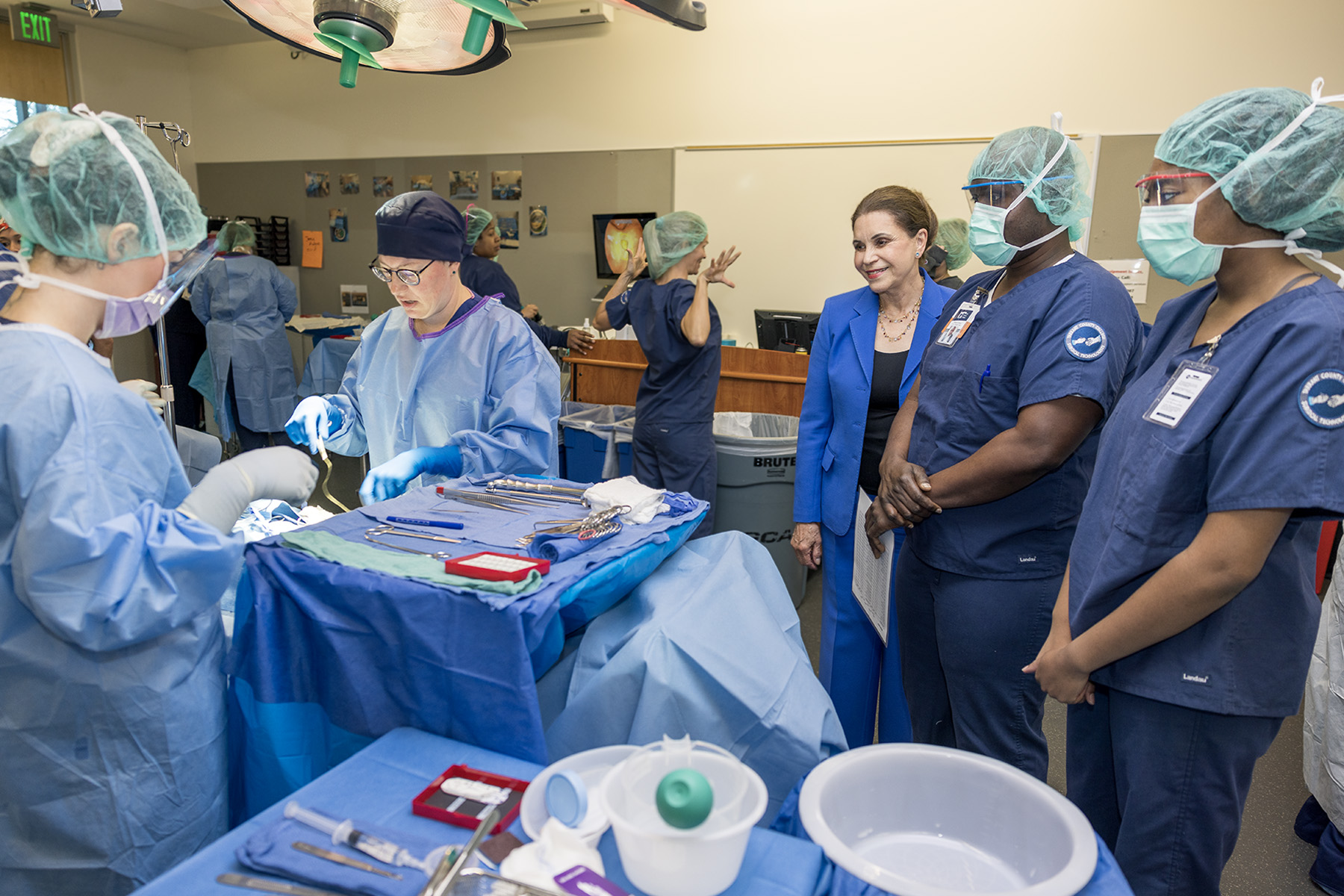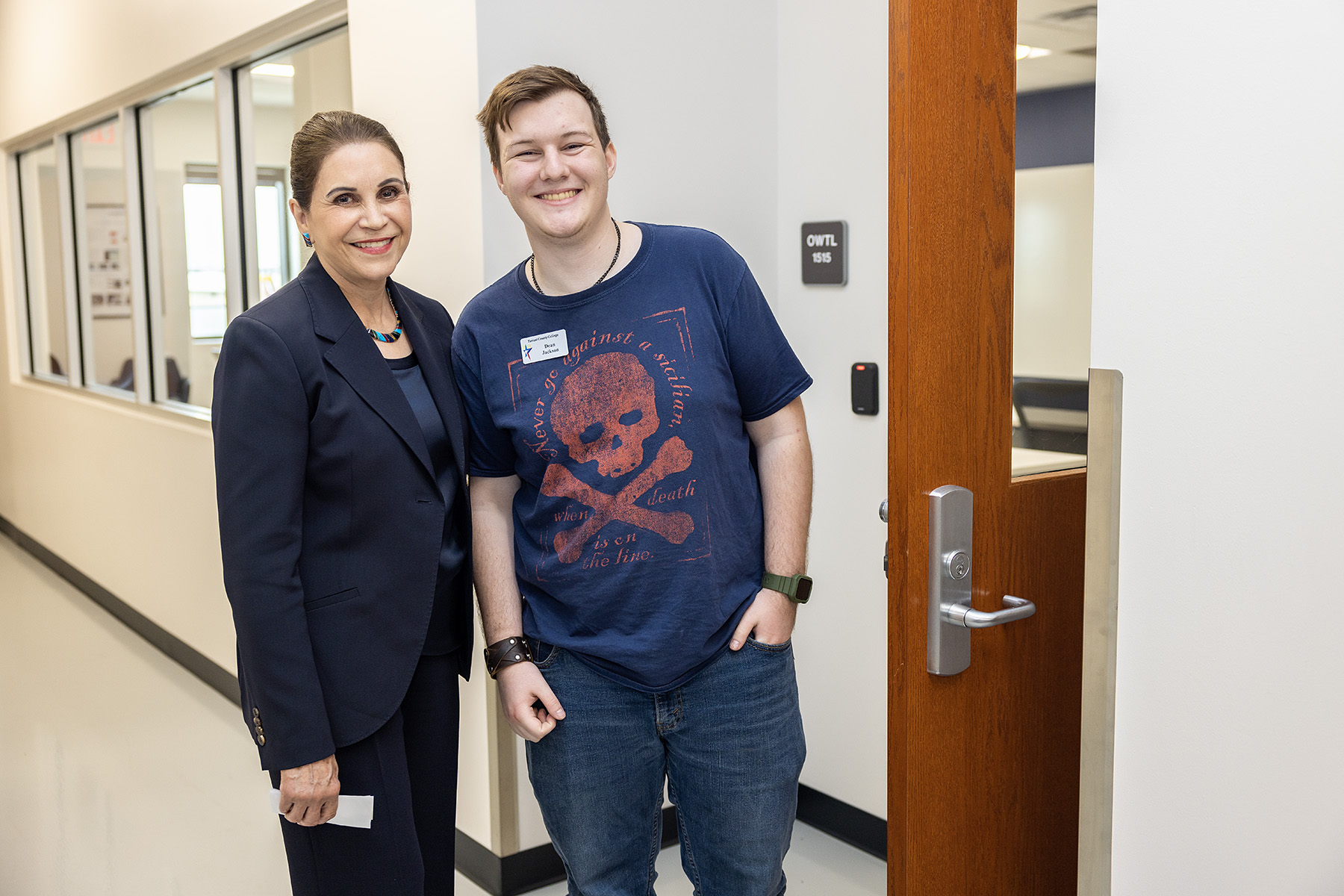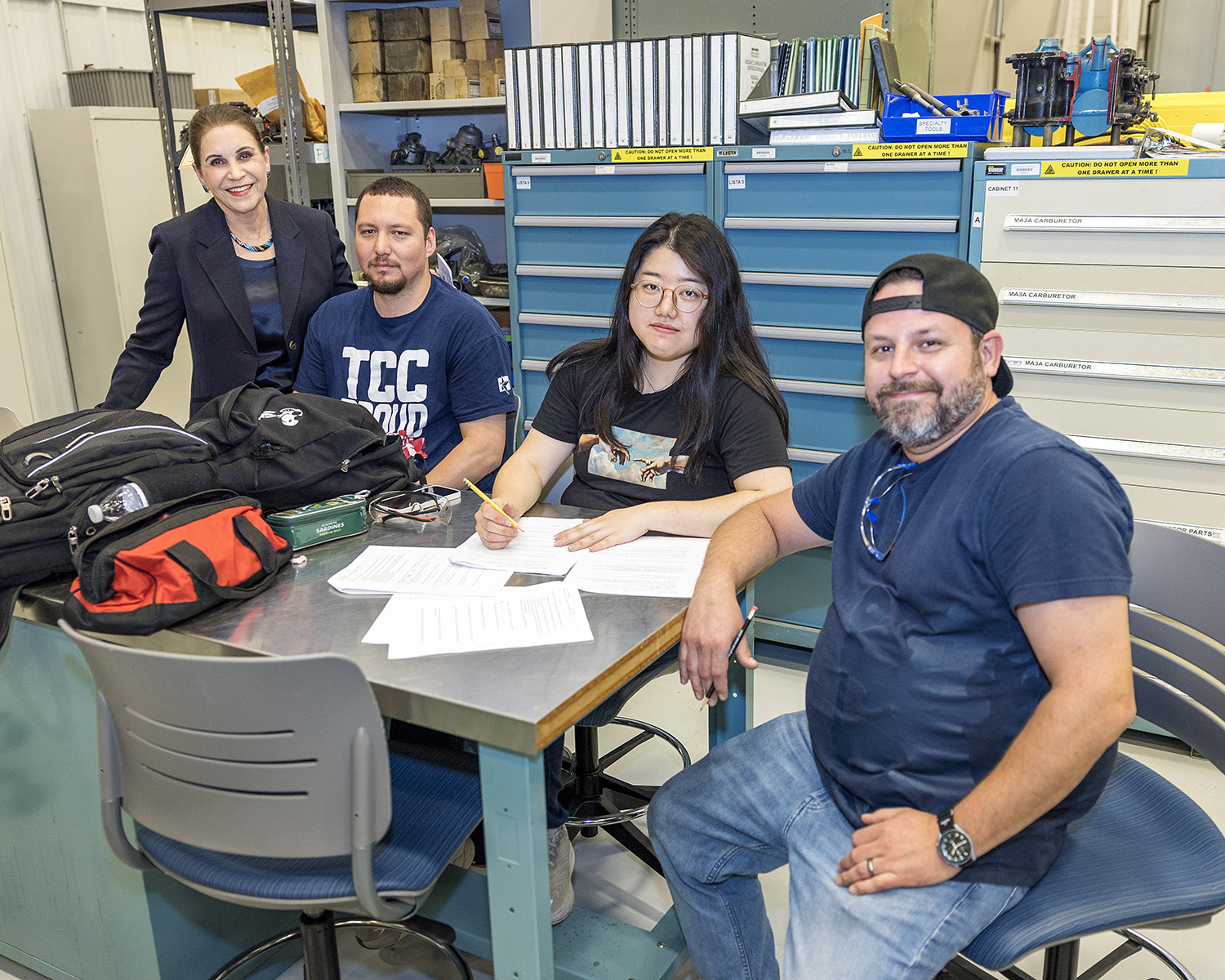Elva LeBlanc, the chancellor of Tarrant County College, has highly comprehensive understanding of the college through her experiences as a student, professor, administrator, and now chancellor leading Tarrant County College successfully in serving a multicultural student body, aligning with the changing economy, and providing opportunities for underserved students.
Elva LeBlanc, the chancellor of Tarrant County College (TCC), a two-year college located in Fort Worth, Texas, has experienced this college from just about every possible viewpoint. LeBlanc started her academic career there as a student. After earning her undergraduate, master’s, and doctoral degrees at the University of North Texas, she returned to teach at Tarrant and served as an administrator.

A Chancellor who has Done it All
At Tarrant, LeBlanc has served as a professor of psychology, a coordinator of its Child Development Program, and as Chief Academic Officer. Although she moved on to become president of Galveston College, she returned to TCC as Executive Vice Chancellor and Provost.
She was named chancellor in December 2022, so she has only been in charge for half a year or so. Chancellor LeBlanc oversees Tarrant County College’s six campuses: five physical and one online.
Hence, LeBlanc has seen TCC from a 360-degree perspective - as a student, professor, administrator, and now chancellor.
Asked how she feels about assuming this new role, LeBlanc replies, “I’m honored. I’ve served this college in multiple ways, and when you have a different role, you see it from a different lens.” She sees considerable potential for the college to grow based on its “talented faculty, talented staff, and caring atmosphere for the student.”
LeBlanc epitomizes the immigrant who moved to the U.S. for a better life and achieved it. She was born in Chihuahua, Mexico, immigrated with her family to El Paso, Texas as a two-year-old child, and through education, rose from poverty to the middle class and then climbed the career ladder in higher education.
Several other factors that stand out about LeBlanc are her diplomatic sensibility, her inclusive outlook, and her ability to take into consideration multiple audiences while remaining student-centered.

Leading A Diverse College – Supporting Underserved and Hispanic Students
In Fall 2022, TCC served 43,500 students, which represents a 20% post-Covid decline from its Fall 2019 enrollment of 50,500 students. Its student body is extremely multicultural, though Hispanics constitute the largest segment. Its student population consists of 35% Hispanic, 32% Anglo, 19% African American, 7% Asian, and 7% other. Of these students, 37% receive financial aid, and 19% are first-generation college students.
LeBlanc attributed the decline to more college-age students opting to work, more limitations on immigration, and a lower influx of younger people moving to Texas. The college administration learned many things during the pandemic, including “transitioning to the use of more technology and how we teach the student,” she noted.
Despite the overall enrollment decline, the college’s Hispanic population has been growing steadily, which LeBlanc attributed to “TCC’s early college high school programs, which offer students the opportunity to simultaneously earn a high school diploma and an associate degree or certificate.” These programs are provided at 23 locations in partnership with eight regional school districts. The program prioritizes space for first-generation college students and those who speak English as a second language.
These underserved students aren’t charged tuition. She asserted that most of them “are poor, but they’re smart and motivated.” And the college works with their families to support them. Moreover, they are offered jobs at the college which pay $15 an hour, and “earn enough money so they don’t have to go out to get another job. We show them that college is within their reach, with very successful results,” she said proudly.
TCC has also been certified as a Hispanic Serving Institution (HSI), which means it has a minimum of 25% Hispanic students.

Priorities – Preparing Students for the Workforce and Further Education
Asked what her top priorities are as chancellor, LeBlanc replied, “The Texas economy is changing, and TCC must be nimble and move quickly if we are to effectively serve our community.” To that end, it partners closely with companies to “shape our programming, curricula and learning technologies to match evolving employer needs”. A business advisory committee helps it stay one step ahead of these changing needs and identifies internships and on-the-job training.
She added that another priority involves ensuring that its graduates are “career-ready” to succeed in their careers. LeBlanc said TCC aims to give students the “tools to succeed--whether that means becoming a proficient English speaker, completing a workforce training program that enables rapid entry to the workforce, and/or finishing their associate degree and going on to a university.”
Its campuses reflect the diversity of its majors: South Campus offers manufacturing, robotics, and construction; Northeast Campus, IT training, dental hygiene, graphic communication, child development and education; Northwest Campus, aviation training, transportation, logistics, entrepreneurship, police, and fire academy; Southeast Campus, culinary arts, hospitality management and engineering, and Trinity River Campus, nursing, and allied health programs, such as radiology and nuclear medicine technician.
TCC offers associate degrees and certificates but works closely to enable students to transfer into four-year colleges. “We ensure that we offer transferable courses and have numerous transfer articulation agreements that allow our students to rapidly achieve the goal of a bachelor’s degree,” cited LeBlanc. As of spring 2023, TCC had 177 such agreements with 63 four-year institutions, located within Texas and outside the state. It also offers 70 specialized workforce programs.
Of its students who transfer to a four-year college, the five most popular majors are business administration and management, nursing, general business, psychology, and biological science. It also introduced innovative programs such as a professional pilot training program, which addresses the shortage of airline pilots worldwide, and an electrical line technician program. TCC also partners with K-12 public schools to engage students in thinking about attending higher education at an early point. Some students start in a certification program, gain confidence and success, and switch to associate degrees and four-year programs. TCC also goes out of its way to attend to the needs of older students and veterans “to accommodate them and move them along quickly and in programs that take less time to complete,” she noted.
Asked to project where she expects TCC to be two years from today, LeBlanc said it will be “a respected partner with the business community to help find solutions that better prepare the workforce of the future.” •